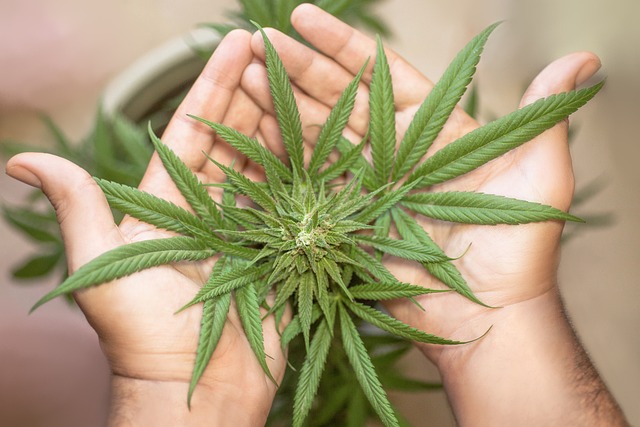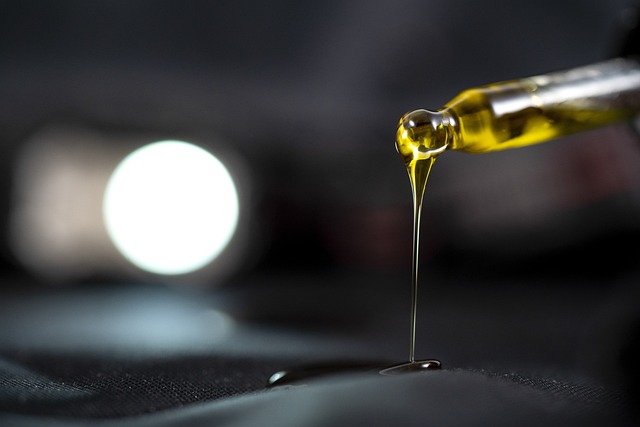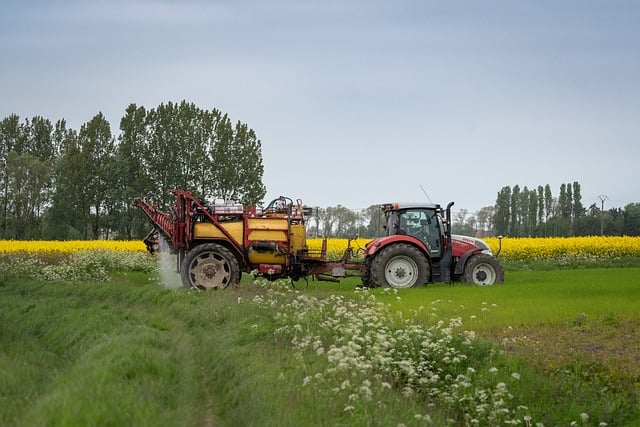In Australia, the legal status of THCA (tetrahydrocannabinolic acid), a non-psychoactive cannabinoid with therapeutic potential, varies by state. While THCA itself is not explicitly controlled at the federal level, its conversion to THC, a psychoactive compound, is heavily regulated. As of 2023, some Australian states such as New South Wales and Victoria have established legal pathways for medicinal cannabis products containing THCA, leveraging their therapeutic benefits without inducing psychoactive effects. However, consumers and growers must navigate complex jurisdiction-specific laws that are subject to frequent updates and revisions. The Therapeutic Goods Administration (TGA) oversees medical and scientific uses of cannabis, distinguishing between different cannabinoids like THCA. Individuals interested in THCA's benefits should consult healthcare professionals and monitor state regulations for safe and compliant use or cultivation. Growers looking to produce THCA flowers must adhere to both federal guidelines from the Therapeutic Goods Administration (TGA) and state-specific licensing schemes, ensuring they follow Good Production Practice (GPP), maintain environmental standards, and stay informed on legislative changes to avoid legal penalties. The cultivation of THCA flowers is a growing segment within Australia's wellness and therapeutic sectors, requiring careful adherence to the evolving legal framework to contribute positively to the industry and consumer health.
Explore the transformative potential of THCA flower, a non-psychoactive cannabinoid precursor gaining attention for its medicinal properties and compliance within Australia’s evolving legal landscape. This comprehensive article delves into the science behind THCA, its cultivation, consumption, and the synergistic effects when paired with other cannabinoids and terpenes. As we navigate through the intricacies of state-specific regulations in Australia, we also examine the global context of THCA’s market presence. From understanding how to safely enjoy THCA flower to the future implications for health, safety, and policy change, this guide is an essential read for anyone interested in the burgeoning world of cannabinoids.
- THCA Flower: Unlocking the Potential of Tetrahydrocannabinolic Acid
- The Legal Landscape of THCA Flower in Australia
- Understanding THCA: A Non-Psychoactive Cannabinoid Precursor
- The Chemistry Behind THCA and Its Transformation to THC
- THCA Flower Cultivation: A Guide for Compliant Growing in Australia
THCA Flower: Unlocking the Potential of Tetrahydrocannabinolic Acid

Cannabis research has long been focused on understanding the various cannabinoids and their potential effects. Among these, Tetrahydrocannabinolic Acid (THCA) has garnered significant attention due to its non-psychoactive nature and promising therapeutic properties. THCA is the precursor to THC (Tetrahydrocannabinol), which becomes active when exposed to heat, such as during smoking or vaporizing. In Australia, the legal status of THCA flower varies by state and territory, with regulations that are subject to change and specific to the concentration of THC that can be legally tolerated. In states where THCA-rich cannabis is legal, the compound has been studied for its potential benefits, which include anti-inflammatory, analgesic, and neuroprotective effects. Users interested in the therapeutic properties of THCA without the psychoactive effects of THC often turn to THCA flower as an alternative. The interest in THCA legal in Australia states reflects a broader trend in the country towards exploring cannabinoids for medical and wellness applications, with a growing body of research contributing to a deeper understanding of their roles and benefits. As regulations evolve, the potential of THCA flower continues to be investigated, offering a nuanced perspective on the cannabis plant’s chemical diversity and therapeutic promise.
The Legal Landscape of THCA Flower in Australia

THCA, or Tetrahydrocannabinolic Acid, is a non-psychoactive cannabinoid found in the Cannabis sativa plant that, with heat, converts into the well-known psychoactive compound THC. As of recent updates to Australia’s drug legislation, the legal status of THCA flower has become a subject of interest and scrutiny among researchers, policymakers, and consumers alike. In Australia, the legal landscape regarding cannabis products is complex, with regulations varying by state and territory. Broadly speaking, as of the knowledge cutoff in 2023, THCA flower is illegal under federal law due to its derivation from the Cannabis plant, which remains classified as a Prohibited Substance under the Poisons Standard (Standard 6). However, individual states and territories have enacted their own legislation that allows for the use of cannabis products for medical or recreational purposes under controlled conditions. For instance, some Australian states such as New South Wales and Victoria have established access to medicinal cannabis through prescriptions, which may include THCA-containing products. These products are typically derived from strains that are bred to produce high levels of THCA, offering potential therapeutic benefits without the psychoactive effects associated with THC. It is important for individuals to be aware of their jurisdiction’s specific laws and regulations regarding cannabis products, as non-compliance can lead to legal consequences. As such, the legal landscape of THCA flower in Australia is dynamic and subject to change as both federal and state governments review evidence on its efficacy and safety.
Understanding THCA: A Non-Psychoactive Cannabinoid Precursor

delta-9-tetrahydrocannabinolic acid (THCA) is a naturally occurring cannabinoid found in the cannabis plant that serves as the precursor to the more well-known psychoactive compound, delta-9-tetrahydrocannabinol (THC). Despite its close relationship to THC, THCA itself does not possess psychoactive properties. This non-psychoactive status has led to increased interest in its potential therapeutic benefits, as users can experience the medicinal effects of cannabis without the ‘high’ typically associated with THC.
In Australia, the legal status of THCA is subject to the stringent regulations that govern the cultivation, possession, and consumption of cannabis products. As of my knowledge cutoff in 2023, the Therapeutic Goods Administration (TGA) oversees the access and use of cannabis for medical and scientific purposes. Australia’s legal framework differentiates between THC and other cannabinoids, including THCA, and this distinction is crucial for businesses and individuals operating within the legal cannabis industry in Australian states. It’s essential for consumers to stay informed about their state’s specific laws regarding cannabis, as regulations can vary significantly from one state to another. In some Australian states, THCA-rich products may be legally available for therapeutic use with a prescription, while in others, they may remain restricted or unregulated. Users looking to explore the potential benefits of THCA should first consult with healthcare professionals and ensure compliance with local laws and regulations.
The Chemistry Behind THCA and Its Transformation to THC

Delta-9-tetrahydrocannabinolic acid (THCA) is the non-psychoactive precursor to delta-9-tetrahydrocannabinol (THC), the primary psychoactive component of cannabis. THCA is found in raw or fresh cannabis flowers and undergoes decarboxylation—a chemical transformation when heated—to become THC. This process occurs during the cannabis cultivation and consumption processes. The chemistry behind this conversion involves the loss of an acidic carboxyl group (-COOH) from THCA, which alters its molecular structure and effects. This decarboxylation is not only a natural occurrence but can also be influenced by various factors such as temperature, time, and light exposure during the curing and storage of cannabis flowers.
In Australia, the legal status of THCA and its derivatives, including THC, varies across different states and territories. As of my knowledge cutoff in 2023, THCA itself is generally not explicitly scheduled under the Australian drug laws. However, the transformation of THCA to THC and the subsequent possession or cultivation of THC are subject to strict regulations. It’s crucial for individuals to be well-versed in the legal landscape governing cannabis-related compounds in their respective states, as penalties can be severe for non-compliance. For instance, in some Australian states like Queensland and New South Wales, medical cannabis is legally accessible under certain conditions, while recreational use remains illegal nationwide. The intricacies of these laws underscore the importance of understanding the legal context surrounding THCA and its transformation to THC within Australia’s states.
THCA Flower Cultivation: A Guide for Compliant Growing in Australia

In recent years, the cultivation of THCA flower, which contains the non-psychoactive compound tetrahydrocannabinolic acid (THCA), has garnered attention in Australia due to its potential wellness benefits and as a precursor to THC when properly heated. Prospective growers interested in THCA flower cultivation must navigate the country’s complex legal landscape, as regulations vary by state and territory. In Australia, the legal status of growing THCA flowers is governed by the Therapeutic Goods Administration (TGA) at the federal level and individual state laws. Growers are advised to stay informed about their state’s regulations, which may differ significantly from those in adjacent regions. For instance, some states have comprehensive licensing schemes that dictate cultivation practices, security measures, and permitted strains. To engage in compliant THCA flower cultivation, one must first obtain the necessary licenses and permits as prescribed by the Australian Office of Drug Control (ODC) and adhere to Good Production Practice (GPP). This involves strict control over environmental conditions, plant health, and record-keeping to ensure a sustainable and legal operation. The guidance provided by the ODC is essential for understanding the prerequisites for setting up a compliant grow operation. Compliance with these regulations is critical to avoid legal repercussions and to contribute positively to the emerging cannabis industry in Australia.
The cultivation of THCA flowers requires careful attention to detail and a deep understanding of both the plant’s needs and the legal framework within which it must be grown. Growers must prioritize maintaining high standards of quality control, from soil preparation to harvesting. The climate and soil conditions in Australia can greatly affect the potency and purity of THCA flowers, thus requiring tailored cultivation techniques. Additionally, growers should stay abreast of any changes in legislation that could impact their operations. As the legal landscape evolves, compliance becomes even more paramount to ensure the longevity and success of a THCA flower cultivation venture in Australia. Whether for personal use under local regulations or for contributing to the therapeutic market, growing THCA flowers legally requires diligence, adherence to strict protocols, and a commitment to staying informed on state-specific laws and federal guidelines.
navigating the intricacies of THCA flower and its burgeoning role within Australia’s legal landscape offers a promising horizon for researchers, wellness enthusiasts, and regulators alike. The comprehensive guide to THCA flower cultivation ensures compliance with state regulations, paving the way for sustainable and lawful production. As the understanding of THCA as a non-psychoactive cannabinoid precursor deepens, its potential applications continue to unfold, potentially transforming the wellness industry and beyond. Prospective growers, patients, and policymakers are encouraged to stay abreast of the evolving legal frameworks governing THCA flower in Australia, ensuring the responsible exploration of this natural compound’s untapped potential.
